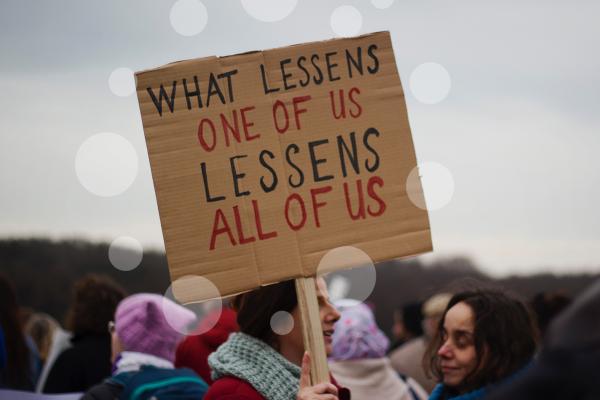The Loneliness Project provides comprehensive insight into the range of interventions undertaken as part of the initiative. The mission is to understand the pervasive issue of loneliness affecting many across Europe.
This includes an overview of a new EU Loneliness Survey carried out in 2022, which garnered responses from over 25 000 participants, providing invaluable data to guide the European Commission approach.
- The policy brief summarises the results on loneliness interventions of a new EU-wide survey on loneliness which had over 25 000 respondents.
- Overall, 43% of respondents report being aware of loneliness interventions offered in their country.
- Lonely people are more stigmatised in societies where social norms are restraining individuals’ behaviour to a high extent and by men, young people and affluent respondents, as well as by very lonely individuals themselves.
- The large majority (73%) of respondents think that individuals and families should play a major role in supporting lonely people.
- The most common activities respondents do to alleviate loneliness include seeing friends and family members (53%), taking time for themselves (44%), and using more social media (34%).
- Very lonely respondents report more often wanting to do something to feel less lonely but not knowing what to do.
- Promoting knowledge about how to support lonely family members and friends appears important. Interventions and outreach strategies should be tailored to consider cultural contexts, the level of loneliness and variation of social stigma, and different preferences for activities by participants.
Effective interventions to address loneliness
Despite the high relevance, research on the effectiveness of loneliness interventions is still a relatively young endeavour. However, there is an increasing demand for intervention strategies to address loneliness, even in the absence of a solid evidence base. To contribute to this evidence base, the JRC has published an umbrella review on the effectiveness of interventions tackling loneliness. Based on an overview of existing empirical evidence, the review highlights the differential effectiveness of loneliness interventions by target group and type, and suggests psychological treatment and social support interventions as promising approaches. The review recommends a range of different low-threshold interventions with simplified access routes, while considering cultural factors and different age and risk groups including young people. Importantly, the review advocates for more systematic evaluation of interventions.
In addition, JRC has conducted expert interviews with practitioners who design and/or implement loneliness interventions on the ground. These interviews provide a qualitative element and bring in the views of experts who work on a range of programmes aimed at lonely people across the EU. The interviews focused on the experts’ understanding on what makes interventions effective, whether there are challenges to effectiveness, and if so, how to overcome them. The findings of the interviews will be published in summer 2023.
Mapping of loneliness interventions
The JRC has mapped loneliness interventions across the EU and published an online repository of interventions. The purpose of the mapping is to share knowledge about on-the-ground intervention strategies with policy makers, practitioners, experts as well as the more general population, with the ultimate goal of informing and supporting policymaking. Please note that the repository does not provide an exhaustive list of loneliness interventions in the EU.
You can access the online repository by clicking on the link provided below. Filters can be applied for a set of categories to search interventions according to specific interests (e.g. loneliness interventions in 'The Netherlands' targeted at 'young people').
The repository includes interventions that have the explicit objective of addressing loneliness. However, some interventions that tackle mental and social health issues with an implicit but important focus on loneliness are also included. Indeed, some organisations may not use the term “loneliness” to prevent stigmatisation. Thus, discarding these initiatives could mean loss of key information on relevant programmes to address loneliness.
JRC’s online repository of loneliness interventions (updated September 2024)
If you would like to include an intervention in the repository, please get in contact with us at jrc-smac-loneliness ec [dot] europa [dot] eu (jrc-smac-loneliness[at]ec[dot]europa[dot]eu)
ec [dot] europa [dot] eu (jrc-smac-loneliness[at]ec[dot]europa[dot]eu)
Collaboration
The JRC has engaged with a number of researchers and practitioners working on loneliness interventions. These exchanges have been paramount to fostering knowledge sharing across sectors, collecting emerging effective actions, and contributing to the discussion at EU level.
Three online events on loneliness interventions took place in 2022 and 2023. Information on loneliness intervention events and meeting reports are available.

